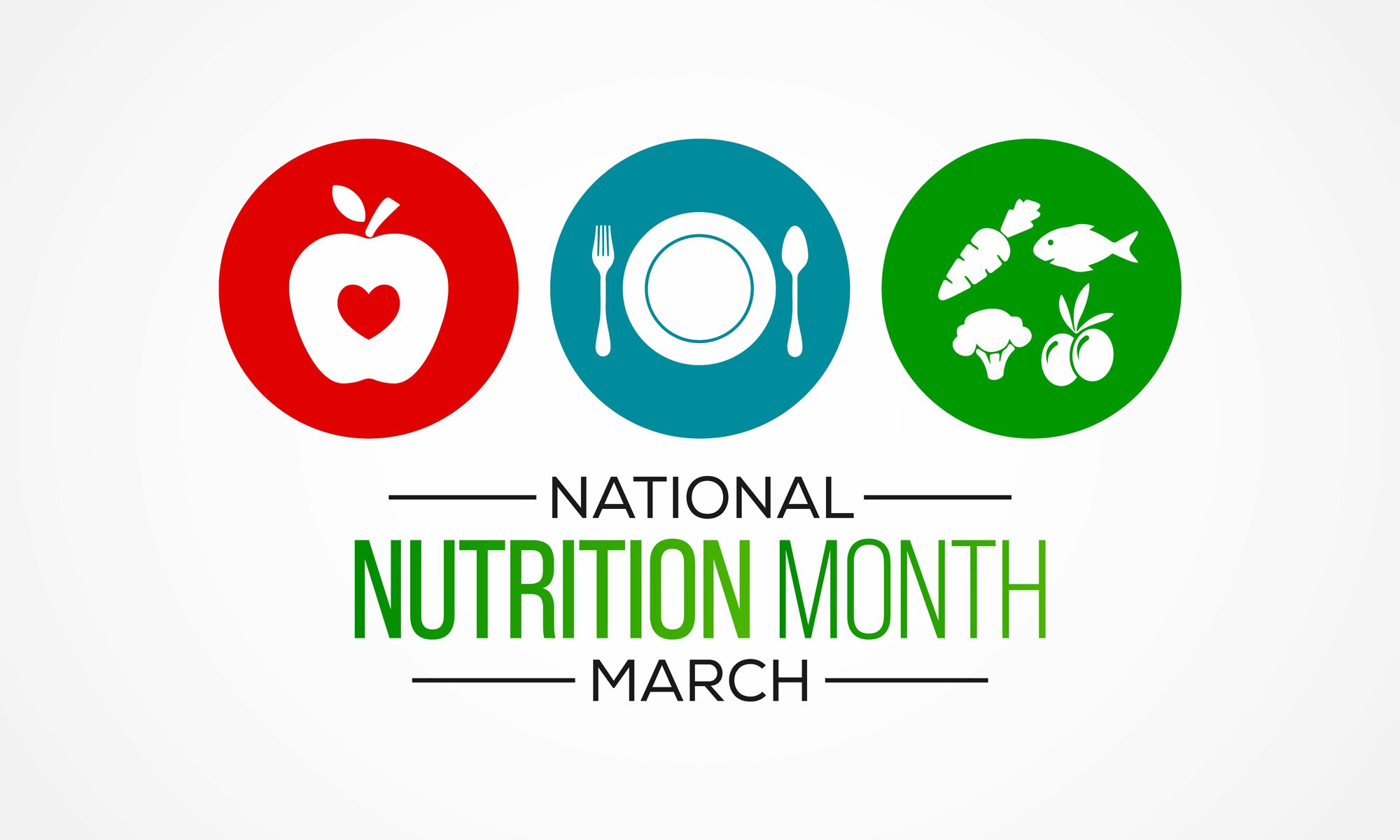March is National Nutrition Month
During the month of March, everyone is invited to learn about making informed food choices and developing healthful eating and physical activity habits.
This month informs the importance of a balanced diet andexercise. A healthy diet throughout life promotes healthy pregnancy outcomes, supports normal growth, development and ageing, helps to maintain a healthy body weight, and reduces the risk of chronic disease leading to overall health and well-being.
Why National Nutrition month is important
It’s an excuse to reset
We hope you’re still crushing your wellness-related New Year’s resolutions! For the rest of us, this month gives us an opportunity to reflect inward and make tangible changes to our diets or workout regimens. It could be as simple as adding another veggie or fruit to every meal.
We’ll look (and feel) better
When we eat real, nourishing foods, we’re getting a wealth of vitamins and minerals that support not only healthy internal function, but give skin, hair, and nails an extra glow. Look good, feel good.
It fosters a community
From yoga classes to sustainable farming workshops, the opportunities to celebrate this month are endless in cities all across the country.
Tips for eating well
Good nutrition means your body gets all the nutrients, vitamins, and minerals it needs to work its best. Plan your meals and snacks to include nutrient-dense foods that are also low in calories.
Eat plenty of fruit
-
To get the benefit of the natural fiber in fruits, you should eat fruit whole rather than as juices.
Eat plenty of whole grains
-
At least half of the cereals, breads, crackers, and pastas you eat should be made from whole grains.
Choose lean meats
-
Lean cuts of meat and poultry have less fat and fewer calories but are still good sources of protein.
Eat plenty of vegetables
-
Eat a variety of colors and types of vegetables every day.
Choose low fat or fat free milk
-
These provide calcium and vitamin D to help keep your bones strong.
Try other sources of protein
-
Try replacing meats and poultry with fish, beans, or tofu.
Learn more about good nutrition from our Health Library:


